SUMMARY
This is AI generated summarization, which may have errors. For context, always refer to the full article.
![[OPINION] The tragic irony of defending the tobacco industry amid a pandemic](https://www.rappler.com/tachyon/2021/03/tl-tobacco-coronavirus-sq.jpg)
On March 21, a draft administrative order (AO) barring companies in conflict with public health, like tobacco and alcohol companies, from procuring COVID-19 vaccines drew the ire of lawmakers.
Senator Franklin Drilon tagged the draft AO, which as of this writing has been revised to remove the controversial provision, as “unlawful,” stating that it is our “moral responsibility to share the vaccine.” Senate President Pro Tempore Ralph Recto also slammed the proposal, asking the Department of Health (DOH) and National Task Force Against COVID-19 (NTF) why it would not allow private wealth to be used for public welfare.
Representative Mike Defensor of the Anakalusugan partylist, which lists healthy lifestyles among its advocacies, welcomed the assistance from these industries, arguing that “we need all hands on deck in suppressing this pandemic.”
Reports did not indicate how the draft AO came to the attention of lawmakers, and the DOH was quick to point out that it was still in the process of reconciling the proposed provisions with other existing laws and guidelines when news broke. Nevertheless, lawmakers have escalated their calls – from allowing the tobacco industry to purchase vaccines for its workers, to repealing a Civil Service Commission-Department of Health Joint Memorandum Circular 2010-01 (CSC-DOH JMC) designed to protect the bureaucracy against tobacco industry interference.
In arguing for the repeal, Surigao del Norte 2nd District Representative Ace Barbers highlighted the “need to be vigilant” against the exclusion from the national vaccination program of certain industries that are in conflict with public health. Barbers went on to say that government should not be “misdirected” by interest groups that “work to set [them] against each other.”
Misdirecting the public
But who, between the tobacco industry and civil society organizations that are pushing for tobacco control, is misdirecting the public?
In 1998, seven cigarette manufacturers in the United States released 6 million secret documents as part of a legal settlement of lawsuits brought against tobacco companies. These documents, which included research reports and advertising, marketing, media, and public relations strategies in the United States and other countries, reveal a “web of deceitful practice” – ranging from the use of secretly paid consultants, journalists, and pro-tobacco organizations to cast doubt on the harmful effects of tobacco, to outright conspiracy and collusion to prevent or delay tobacco control measures.
The tobacco industry also has a long history of using “corporate social responsibility” to interfere with policymaking. In the 2000 Report of the Committee of Experts on Tobacco Industry Documents that outlines the strategies employed by the tobacco industry to undermine tobacco control efforts, the World Health Organization (WHO) noted that tobacco companies have “attempted to gain favor and influence at WHO through philanthropic contributions.”
According to the WHO, Philip Morris viewed its proposal to fund a WHO vaccine program “as an opportunity to penetrate the bureaucratic structure of WHO,” which could result in “gaining some foreknowledge of developing attitudes [toward tobacco] or action proposals or perhaps even exerting some minor influence on the resolution of specific scientific issues…”
Tobacco companies have also tried to use vaccination programs to direct attention away from the tobacco epidemic and tobacco regulation. In the report, the WHO outlined how Paul Dietrich, a lawyer with long ties to the tobacco industry, orchestrated a media program to promote the position that health spending in Latin America should not be used for tobacco control initiatives but for children’s immunization programs. This media campaign was timed to coincide with the 8th World Conference on Tobacco or Health in 1992.
Now, the tobacco industry is “exploiting the COVID-19 pandemic to provide resources to countries badly in need of them, framing itself as being ‘part of the solution,’” according to the Global Tobacco Industry Interference Index 2020. Locally, tobacco companies have donated face masks, testing equipment, and ventilators, effectively framing itself as an ally in the fight against COVID-19.
But if the history of the tobacco industry teaches us anything, it is that it cannot be an ally and it cannot be part of the solution, because its interests are diametrically opposed to public health.
Protection from interference
This is why the WHO Framework Convention on Tobacco Control (FCTC) reminds parties to be vigilant against “efforts by the tobacco industry to undermine or subvert tobacco control efforts,” and why Article 5.3 of the WHO FCTC calls on parties to protect tobacco control policies from commercial and other vested interests of the tobacco industry.
The Guidelines for Implementation of Article 5.3 of the WHO FCTC notes the “fundamental and irreconcilable conflict” between the tobacco industry’s interests and public health policy interests, because the tobacco industry’s commercial viability rests in selling a product that is known to cause death and disease.
Hence, the guidelines recommend that parties establish measures to limit interactions and reject partnerships with the tobacco industry, avoid conflicts of interest, and ensure transparency in all necessary dealings with the tobacco industry. It also calls on parties to de-normalize and regulate “corporate social responsibility” activities of the tobacco industry, which it historically uses to distract from the lethal nature of its product, and to interfere with the setting and implementation of public health policies.
By signing and ratifying this treaty, the Philippines committed to enforce its provisions in good faith and not to undermine its objectives. Part of this commitment is the issuance of the CSC-DOH JMC, a landmark policy that is considered by the WHO FCTC Secretariat as among the best practices in the implementation of Article 5.3 of the WHO FCTC.
The CSC-DOH JMC provides a code of conduct for government officials in relation to the tobacco industry, including those that work on its behalf or to further its interests. Consistent with the WHO FCTC, it requires all public officials to: (1) reject interactions with the tobacco industry unless necessary for regulation; (2) make all necessary interactions public and transparent; (3) reject any form of contribution from the tobacco industry; and (4) disclose any interest in the tobacco industry. Since its issuance, 15 national government agencies have adopted similar codes of conduct or restrictions against tobacco industry interaction.
Where the conflict lies
Some lawmakers suggest that there was conflict of interest when the CSC and DOH issued the JMC in 2010, following a grant from the Bloomberg Initiative to Reduce Tobacco Use Grants Program. Bayaning Atleta Partylist Representative Jericho Nograles alleged that the DOH has been “compromised by foreign money,” while Drilon claimed that anti-tobacco CSOs have “selfish agendas.” Which begs the question: is there conflict of interest between civil society organizations that push for evidence-based public health policies, and the DOH whose primary role is to promote the public’s right to health?
Is the DOH compromised by foreign donations meant to help the country achieve sustainable development goals to reduce premature deaths from noncommunicable diseases by one third by 2030?
Or does the conflict lie in defending an industry that peddles a product guaranteed to kill one-half of its users?
Tragic irony
The controversy surrounding the draft AO has been settled. That workers within the tobacco industry are entitled to vaccines is entirely acceptable.
But there is tragic irony in defending the tobacco industry and calling to repeal the JMC while fighting a pandemic. Public health experts have found that smokers are more likely to develop severe disease with COVID-19 compared to non-smokers because COVID-19 primarily attacks the lungs, yet the tobacco industry has not been held accountable for how it has contributed to this pandemic.
Lawmakers should ask: while the country is facing a surge of COVID-19 infections and deaths, is it advisable to roll back a tobacco control measure that prioritizes public health and has protected Filipinos from the ravages of the pandemic? – Rappler.com
Add a comment
How does this make you feel?
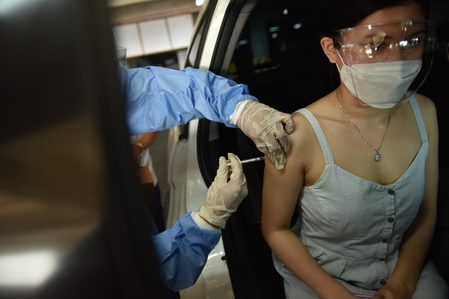
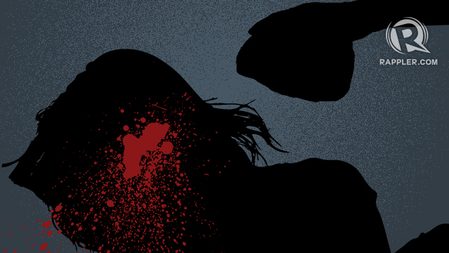
![[WATCH] Bamban POGO scandal: There’s a bigger fish than Alice Guo](https://www.rappler.com/tachyon/2024/07/inside-track-tcard-bamban-pogo.jpg?resize=257%2C257&crop=435px%2C0px%2C1080px%2C1080px)
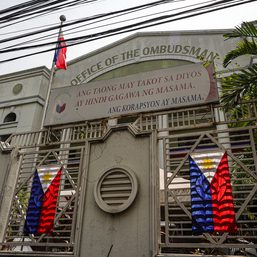


![[OPINION] What kind of citizens are we?](https://www.rappler.com/tachyon/2024/07/tl-what-kind-of-citizen-are-we.jpg?resize=257%2C257&crop=333px%2C0px%2C1080px%2C1080px)

![[Rappler’s Best] US does propaganda? Of course.](https://www.rappler.com/tachyon/2024/06/US-does-propaganda-Of-course-june-17-2024.jpg?resize=257%2C257&crop=236px%2C0px%2C720px%2C720px)

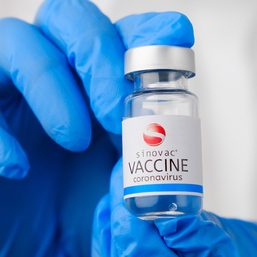




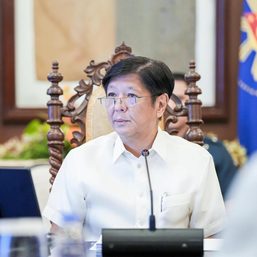
![[WATCH] #TheLeaderIWant: Filipino voters sound off on community issues a year before 2025 elections](https://www.rappler.com/tachyon/2024/05/filipino-voters-sound-off-on-community-issues-1.jpg?resize=257%2C257&crop=276px%2C0px%2C720px%2C720px)
There are no comments yet. Add your comment to start the conversation.